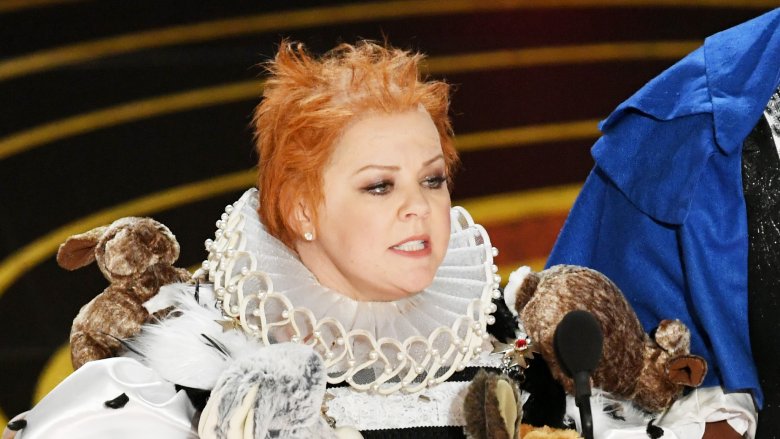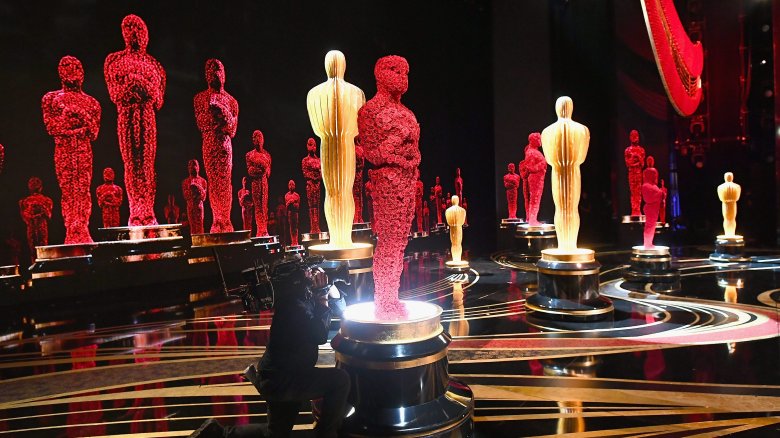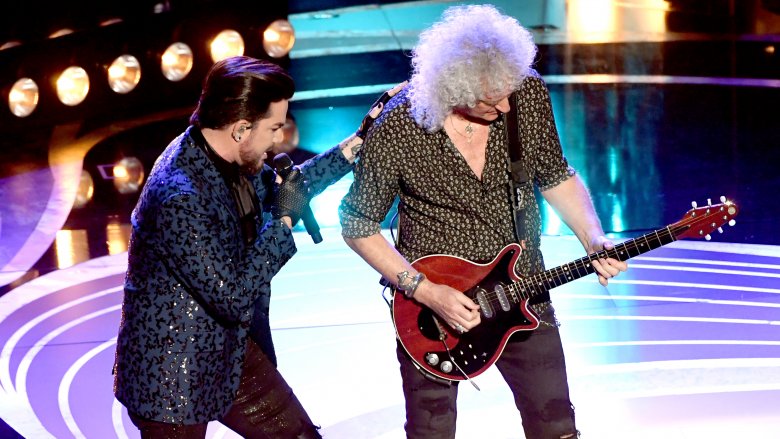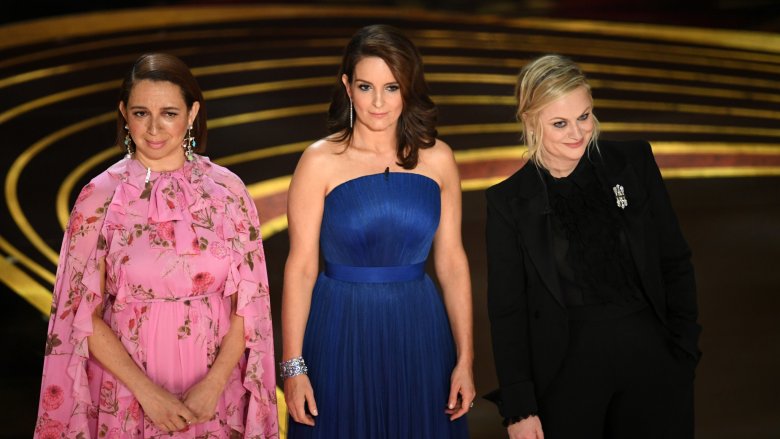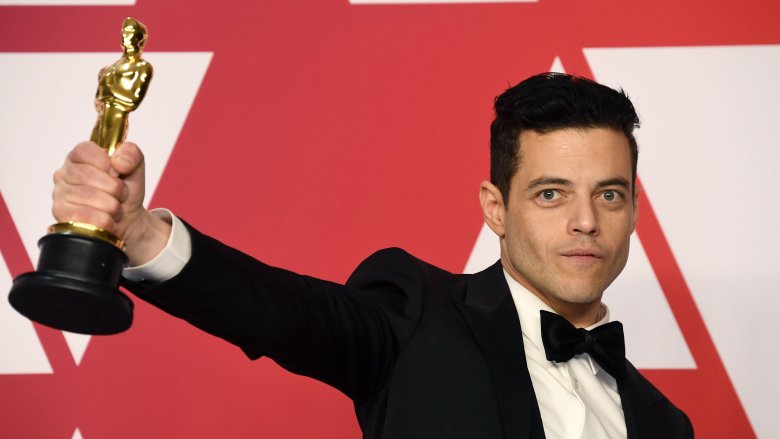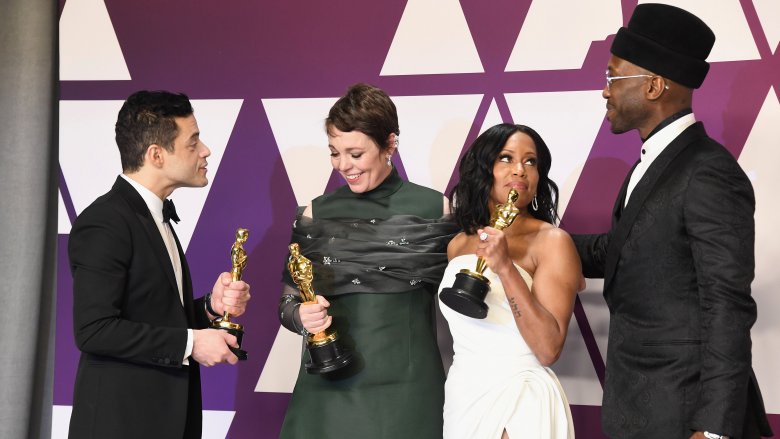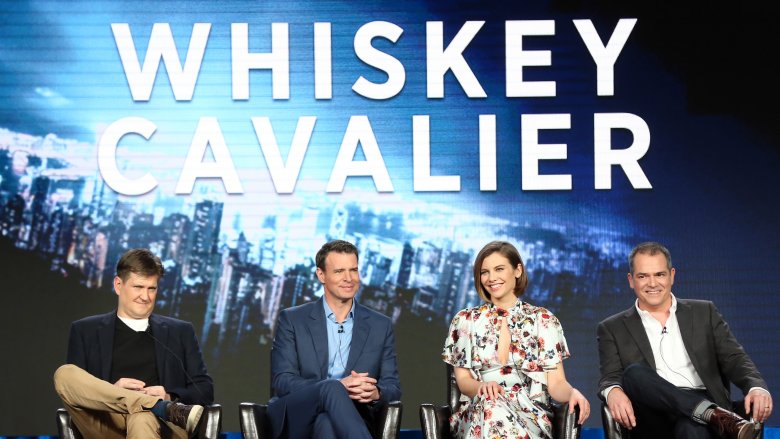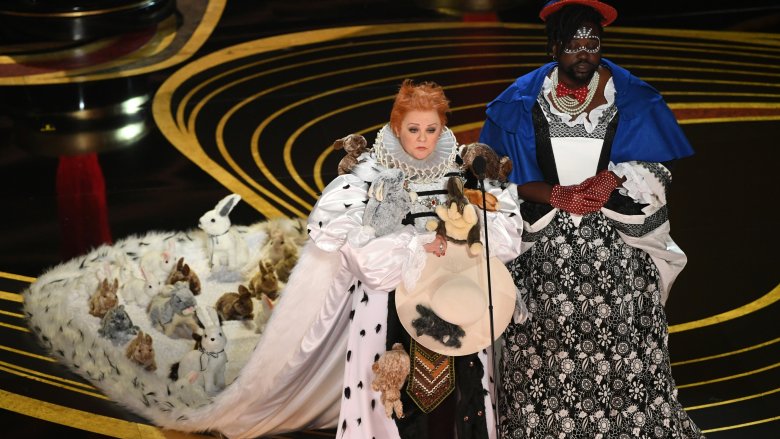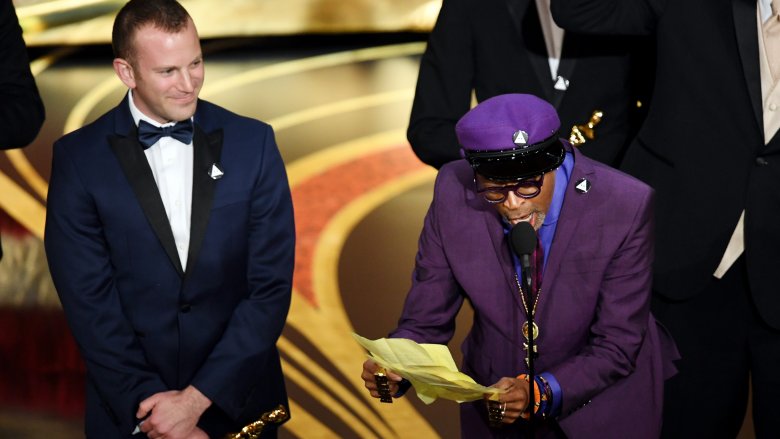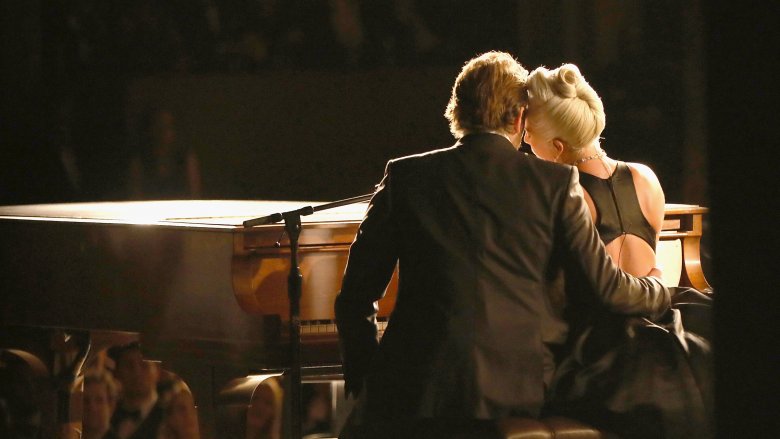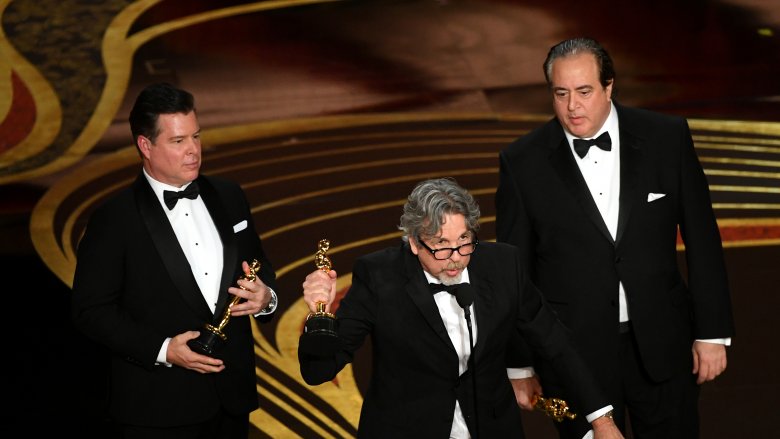5 Best And 5 Worst Moments At The 2019 Oscars
The 91st Academy Awards were broadcast on February 24, 2019, and as is the case with every Oscars telecast, there were plenty of surprises, snubs, and unexpected moments to fill the evening. With nominees like Spike Lee's masterpiece BlacKkKlansman, the Freddie Mercury biopic Bohemian Rhapsody, the Lady Gaga vehicle A Star is Born, and Alfonso Cuaron's deeply personal black and white film Roma, there were plenty of options for Best Picture and tons of opportunities for new faces and beloved veterans to pick up awards.
This Oscar telecast was destined to be different, thanks to plenty of controversy before it even aired — after Kevin Hart's exit as host thanks to some unsettling old tweets, the show decided to skip a host entirely, and after the Academy announced that it would cut song performances and a few select awards from the televised ceremony, outcry forced the organization to rethink those decisions. From the high points to the low, here are the five best and five worst moments at the 2019 Oscars.
Best: No host
Though comedian Kevin Hart was originally chosen as the host for this year's Oscars, public outcry proved to be too much for the Academy after Hart found himself in hot water over old homophobic tweets surfaced that disturbed plenty of potential Oscar viewers. After Hart removed himself from hosting duty, fans of the Academy Awards expected that a new host would be announced soon, only to be surprised by the announcement that the Oscars would go without a host at all, cutting both the opening monologue and the opportunity for skits along the way.
As it turned out, having no host was incredibly beneficial for the telecast as a whole — the show's pacing was much better than in previous years, with the first major award (for Best Supporting Actress) being presented much earlier than usual. Without a long open monologue, a random pizza delivery, or any gags involving "normal people," the telecast felt brisk, clean, and uncomplicated. Maybe, going forward, the Oscars should keep going without a host, making the ceremony more about the films, actors, and artists that it's supposed to be celebrating rather than serving as a vehicle for a stand-up comedian or late night host.
Worst: Queen performance
Of course, leaving the ceremony without a host meant there had to be some sort of opener, and presumably to honor both the memory of Freddie Mercury as well as Best Picture nominee Bohemian Rhapsody, the Academy enlisted the remaining active members of Queen as well as former American Idol contestant Adam Lambert to perform a medley of the band's greatest hits, complete with pyrotechnics, flashy costumes, and all the flamboyant showmanship viewers associate with Queen. Lambert has been touring with the band, so they're all well-acquainted with each other.
Unfortunately, the performance felt a bit lackluster, even to the stars who were watching it live; most of the nominees and guests passively watched the performance from their seats after a brief swell of enthusiasm as the show got started, and it fizzled to an end after just a few minutes, proving that it was likely not the right start to a host-less ceremony.
Best: Tina Fey, Amy Poehler, and Maya Rudolph
When the Oscars announced there would be no host, plenty of fans and celebrities had fantasy hosts in mind, and many people likely hoped that the Academy would reach out to Tina Fey and Amy Poehler, who have previously hosted the Golden Globes together — three times, in fact — and have been met with plenty of acclaim. Fey and Poehler, a popular duo since their days in Second City and their time on Saturday Night Live, have garnered plenty of goodwill over the years, and Maya Rudolph, who is also friends with Fey and Poehler, has become equally as beloved over the years, thanks to her long-running years on SNL and frequent appearances in acclaimed comedies.
Since they were going without a host this year, the Oscars made a wise choice to open the show with these three women, who, despite joking that they were not, in fact, the evening's hosts, delivered a quick, sharp speech that served as a perfect stand-in for an official host. Though it likely made many fans wish these three were official, it set a good tone for the entire evening.
Worst: Bohemian Rhapsody's Oscar wins
Every year, at least one Oscar contender is marred by some sort of controversy, and in 2018 (and even before that) it was Bohemian Rhapsody. First, original director Bryan Singer left the project over claims that his schedule required him to take care of a sick family member, even though his exit was likely due to bad behavior onset as well as years of allegations of sexual assault against minors. Due to a Director's Guild of America rule, Singer is still the credited director on the final film, even though editor Dexter Fletcher took over in his stead. Beyond all that, some feel the film whitewashed Mercury's queer lifestyle and his AIDS diagnosis, glossing over difficult moments in his life to make the film more palatable to the masses.
Rami Malek, who portrayed Freddie Mercury in the film and received overwhelmingly positive reviews for his performance, won Best Actor, but during his acceptance speech, Malek avoided mention of Singer or any of his alleged victims, making for an awkward moment. Between that and the film's unexpected award for Best Editing, in the midst of movements like #MeToo, it may have been tone-deaf for the Academy to award a film mired in this kind of controversy.
Best: The emotional speeches
Oscars night is always filled with emotional speeches, and this telecast was no exception. To kick off the night, Regina King triumphed in the Best Supporting Actress category (the first award presented), and King, who won her first ever Academy Award for thoughtful, emotional performance in Barry Jenkins' If Beale Street Could Talk, brought down the house with a tearful, heartfelt speech dedicated to everyone from Jenkins to her mother, even bringing a tear to fellow nominee Emma Stone's eye. (She also got an assist up to the podium by none other than Captain America himself, Chris Evans, which was just a bonus.)
Spike Lee followed King's example perfectly after winning the first competitive Oscar of his entire career (he won an honorary award in 2015) for Best Adapted Screenplay, and his speech was just as soaring and intense as his film, BlacKkKlansman, an unflinching look at American racism now and then. Between leaping into the arms of Samuel L. Jackson and rousing the audience in a battle cry for change, Lee's unbridled enthusiasm couldn't be matched ... until the end of the show.
Finally, the night's biggest (but most pleasant) surprise came in the Best Actress category, when The Favourite''s Olivia Colman edged out a crowded field and looked just as surprised as anyone else. Visibly shaken, Colman gave a hilarious and off-the-cuff speech which ended in her simply yelling Lady Gaga's name.
Worst: Stop trying to make Whiskey Cavalier happen
The Oscars rotate throughout the major networks every year, and since ABC had the honor of showing the telecast this year, audiences were likely primed for plenty of Marvel love (a Disney property), but ABC took quite a different approach. Besides awkward targeted ads for Marriott hotels and Walmart (with the latter ads insisting that everyone from celebrities and film crew members are always sporting Walmart clothing), the most conspicuous ad push from ABC was for their new show Whiskey Cavalier, which aired immediately after the Oscars ended.
Starring Scott Foley (known for turns on Felicity, Scrubs, and Scandal) and Lauren Cohan (best known for The Walking Dead and The Vampire Diaries), the show focuses on two secret agents who must work together despite their personal differences. Even though the show has received decent reviews from critics, the aggressive marketing push likely didn't endear it to Oscar viewers, who were probably more likely to make a Whiskey Cavalier commercial drinking game than to tune in once the ceremony ended.
Best: Melissa McCarthy & Brian Tyree Henry
Even though Melissa McCarthy was nominated for an Academy Award this year for her entirely serious performance in Can You Ever Forgive Me?, a film about a literary forger forced to grapple with her crimes, her comedy chops are still as strong as ever, and fans of this talented actress know that she can flip from serious to broadly comedic in seconds. From her deeply moving, quiet performance in Can You Ever Forgive Me? to her hypnotically funny (and Emmy-winning) portrayal of Sean Spicer on Saturday Night Live, McCarthy is a tour de force in any setting, so her presenting gig at this year's Oscars was highly anticipated.
Sure enough, McCarthy delivered — when she and Brian Tyree Henry (who has wowed audiences in everything from Atlanta to Widows) walked out to present the award for Best Costume Design, they were both dressed in deliberately over-the-top costumes that referenced everything from Black Panther to Mary Queen of Scots to The Favourite, the latter of which was represented by dozens of stuffed rabbits on McCarthy's outfit (including several puppets that she played with throughout the presentation). Thanks to the pair's deadpan delivery and outlandish costumes, this otherwise lackluster category got more attention than ever, making viewers wonder why these two weren't hosting the entire ceremony.
Worst: Playing off winners
The Oscars has a long history of cutting off acceptance speeches, and famously does so by playing music over the winners so their words are drowned out by the orchestra. Typically, categories like Best Original Score or Best Sound Editing get very little time, whereas actors, directors, and films that win Best Picture get a longer shot at getting their speech exactly right. During this telecast, Olivia Colman of The Favourite, who pulled a huge upset against rival Glenn Close (The Wife) for the Academy Award for Best Leading Actress, was afforded as much time as she needed to gather her thoughts, despite her obvious shock at receiving the award at all, but others don't get that luxury.
As usual, the show got into the habit of swelling the orchestra and even sometimes dimming the lights or cutting mics, leading to abruptly ended speeches — the creators of Best Animated Feature Spider-Man: Into the Spider-Verse didn't have time to thank Stan Lee, for example — but one winner wasn't going to stand for anything like that. When Spike Lee reached the podium to accept his first competitive Oscar (for Adapted Screenplay for BlacKkKlansman), Lee was bleeped for audiences at home while he told the telecast to not turn the clock on, which they reportedly did not out of respect for the acclaimed veteran director.
Best: The "Shallow" performance
Though Bradley Cooper's directorial debut A Star is Born seemed like an obvious Oscar front-runner when it was released in the fall of 2018, the film failed to score any major awards at any of the shows that preceded the Oscars, and Cooper, who was nominated for Best Actor, wasn't nominated for the Best Director category. Nonetheless, the latest iteration of this classic film, which starred Lady Gaga against Cooper, was well received by critics. It gained speed during its press tour, which Gaga and Cooper spent lavishly praising each other.
In the lead-up to the Oscar telecast, A Star is Born's central song, "Shallow," was still considered a lock for Best Original Song, and as such, fans looked forward to the inevitable performance, which would be the first official televised live performance of the duet since Cooper surprised Gaga at her Las Vegas residency. The song was presented simply and without introduction, with just a backing band and Lady Gaga sitting at a grand piano, and as the two tenderly performed the show-stopping song, Cooper joined Gaga on the piano bench, closing the song with the two of them lovingly entwined. Between their exceptional chemistry and the undeniably catchy song, it left no doubts about who would win the upcoming award.
Worst: Green Book's big awards
In a year that included groundbreaking films like Black Panther (which proved that blockbusters could be diverse and deep as well as lucrative), Roma (a stunning personal film shot entirely in Spanish), and BlacKkKlansman (which told viewers in no uncertain terms that America still has a long way to go before it can truly overcome the deep roots of racism), it seemed ludicrous that a film like Green Book could soar to the top of the pack. Directed and written by Peter Farrelly, the mind behind Dumb and Dumber and Shallow Hal, this modern-day Driving Miss Daisy served as yet another "white savior" film, appeasing audiences by telling the story of a black musician (Mahershala Ali) who travels through the American South in the midst of the civil rights movement while accompanied by a white driver (Viggo Mortensen).
Ali, who previously won an Oscar for Moonlight, was the expected front-runner to win Best Supporting Actor, but the real surprises came when Green Book's screenplay beat films like The Favourite and when the film won Best Picture at the end of the telecast. Between Mortensen dropping a racial slur during the press tour, writer Nic Vallelonga's history of disturbing tweets, Farrelly's less than amusing on-set antics, and the often dated tone of the film itself, giving the award to a simplistic, reductive film about racism made by a largely white team is a huge disappointment that many believe will haunt the Academy for years.
